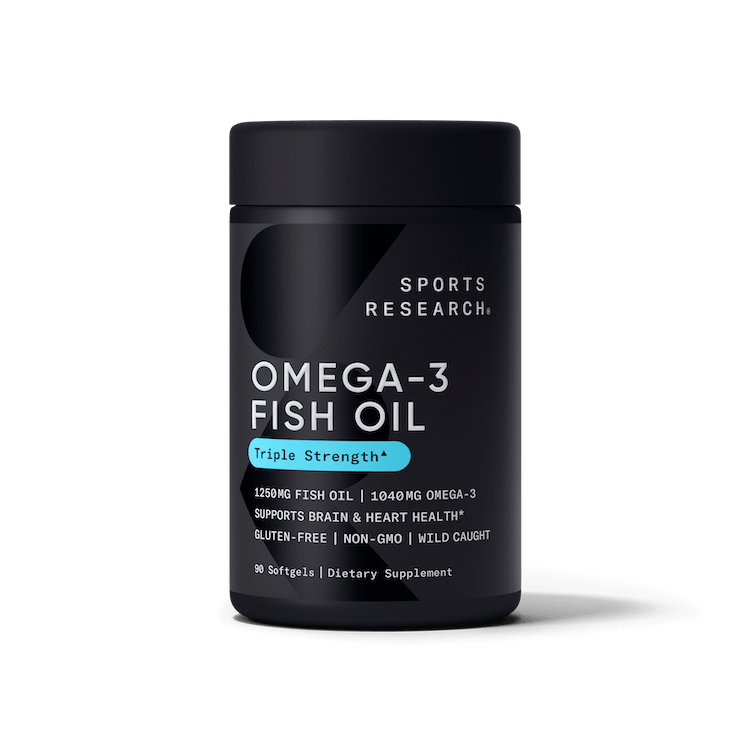Omega-3 - A Powerful Ally in the Fight Against Chronic Joint Pain
Omega-3 - A Powerful Ally in the Fight Against Chronic Joint Pain
Living with chronic joint pain can be a daily struggle, affecting your ability to perform even the simplest tasks. Whether you’re dealing with arthritis, fibromyalgia, or another condition, finding effective pain management strategies is essential to improving your quality of life.
Chronic joint pain is a persistent discomfort that lasts for more than three months. It can be caused by various factors, including inflammation, injury, or underlying medical conditions. The prevalence of chronic joint pain is significant, with millions of individuals worldwide experiencing its debilitating effects.
When it comes to managing chronic joint pain, taking a holistic approach is crucial. While there is no one-size-fits-all solution, incorporating omega-3 fatty acids into your daily routine may offer some relief.
What are Omega-3 Fatty Acids?
Omega-3 fatty acids are a type of polyunsaturated fat that are essential for our overall health. They are primarily found in fatty fish such as salmon, mackerel, and sardines, as well as in plant-based sources like flaxseeds, chia seeds, and walnuts.
The Anti-Inflammatory Properties of Omega-3
One of the key reasons why omega-3 fatty acids are believed to be beneficial for chronic joint pain is their anti-inflammatory properties. Inflammation plays a significant role in joint pain, and omega-3 can help reduce inflammation in the body.
Scientific evidence has shown that omega-3 fatty acids can help alleviate symptoms of joint pain and improve overall joint function. Studies have also suggested that omega-3 may help reduce the need for nonsteroidal anti-inflammatory drugs (NSAIDs), which can have adverse side effects with long-term use.
Incorporating Omega-3 into Your Daily Routine
Increasing your omega-3 intake can be done through dietary changes and supplementation. Here are some practical tips to help you incorporate omega-3 into your daily routine:
- Add fatty fish to your diet at least twice a week. Grilled salmon or tuna salad can be delicious and nutritious options.
- Include plant-based sources of omega-3 in your meals. Sprinkle flaxseeds or chia seeds on your morning oatmeal or yogurt.
- Consider taking omega-3 supplements if you’re not able to consume enough through your diet alone. Consult with your healthcare provider to determine the appropriate dosage.
Tracking your progress is essential when incorporating any new element into your pain management routine. Keep a journal and note any changes in your pain levels or joint function as you increase your omega-3 intake.
Product Spotlight
Aggregate Rating
Our Rating
Triple Strength Omega 3 Fish Oil by Sports Research is a high-quality supplement that offers numerous benefits. Packed with Omega 3 fatty acids, it supports heart health, joint flexibility, and brain function. It also promotes healthy skin and hair.
Other Lifestyle Factors for Chronic Pain Management
While omega-3 fatty acids can be a valuable addition to your pain management routine, there are other lifestyle factors you should consider:
- Regular exercise: Engaging in low-impact exercises like swimming or yoga can help improve joint flexibility and reduce pain.
- Balanced diet: A diet rich in fruits, vegetables, whole grains, and lean proteins can support overall joint health.
- Healthy weight: Maintaining a healthy weight can alleviate stress on your joints and reduce pain.
- Stress management: Chronic pain can often be exacerbated by stress. Explore stress management techniques such as deep breathing exercises, meditation, or engaging in hobbies you enjoy.
Final Thoughts
While omega-3 fatty acids show promise in helping manage chronic joint pain, it’s important to remember that they are not a cure-all solution. Results may vary for each individual, and it’s crucial to consult with your healthcare provider before making any significant changes to your pain management routine.
Living with chronic joint pain can be challenging, but by taking a comprehensive approach to pain management and incorporating omega-3 into your daily routine, you can take steps towards improving your quality of life. Stay hopeful and motivated, and remember that you’re not alone in this journey.
Note: This article is for informational purposes only and should not replace professional medical advice. Always consult with your healthcare provider before starting any new treatment or supplementation.

